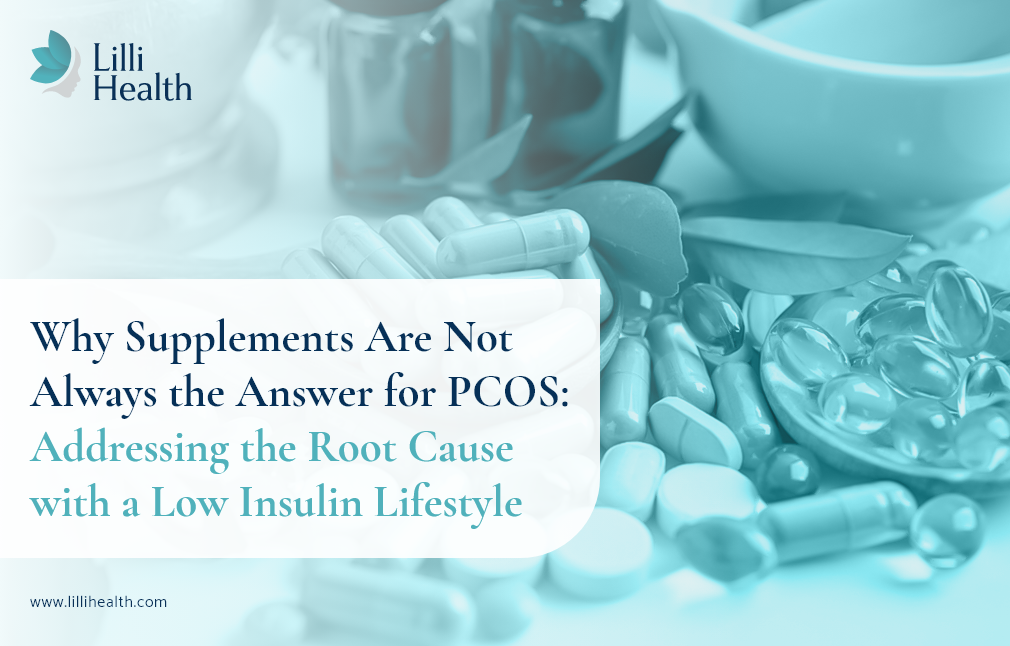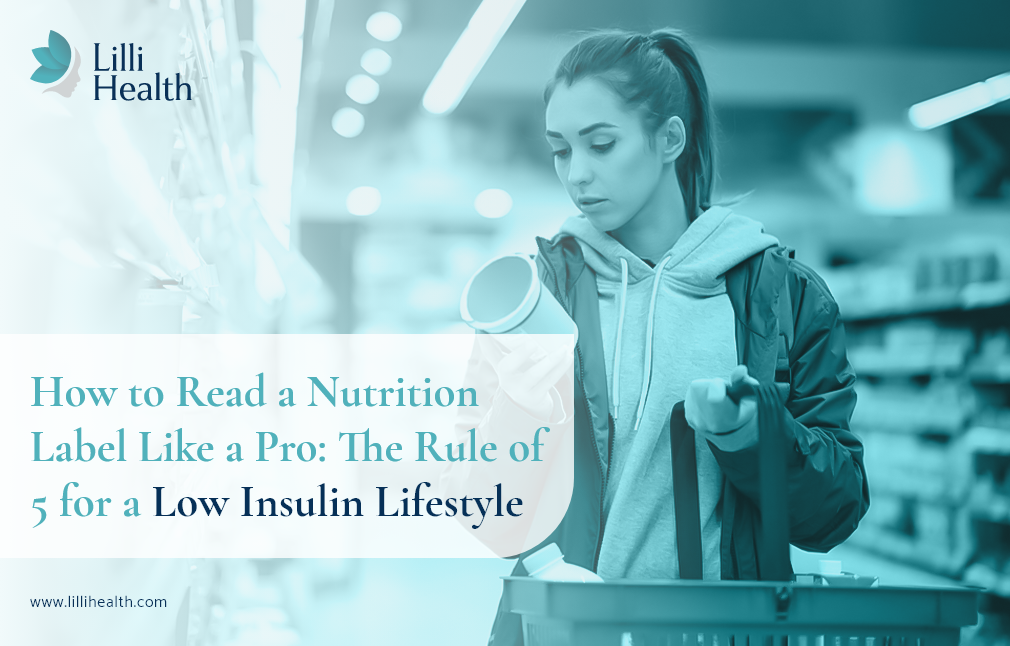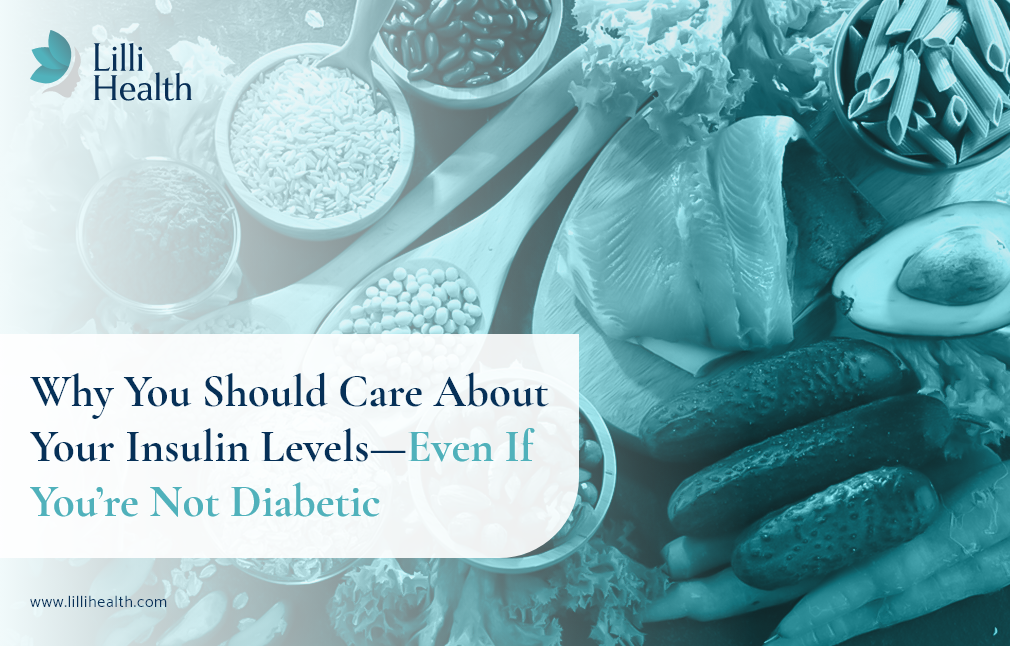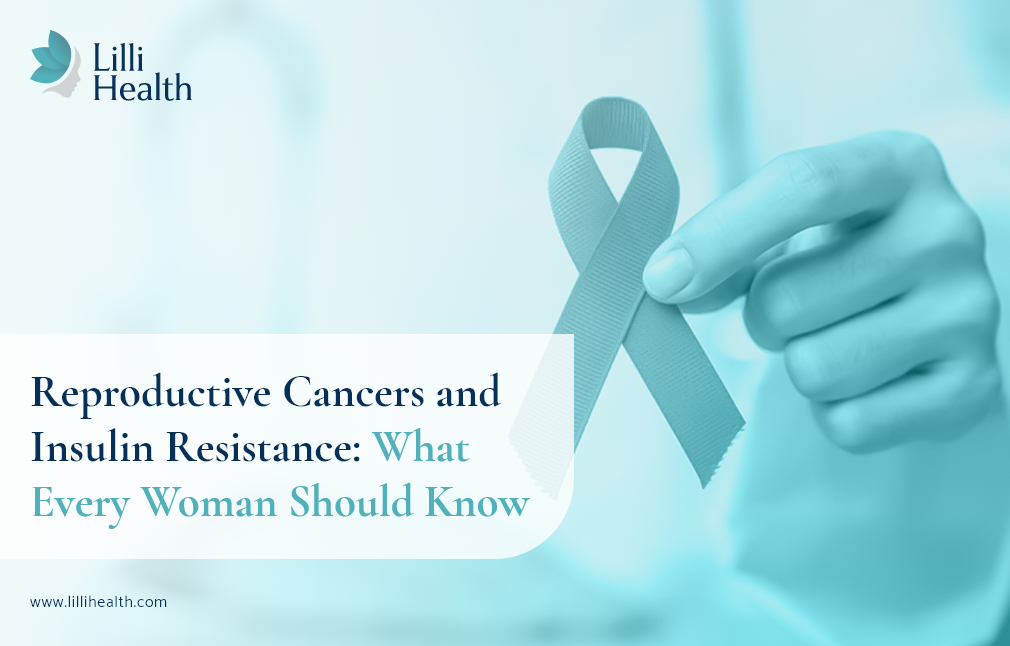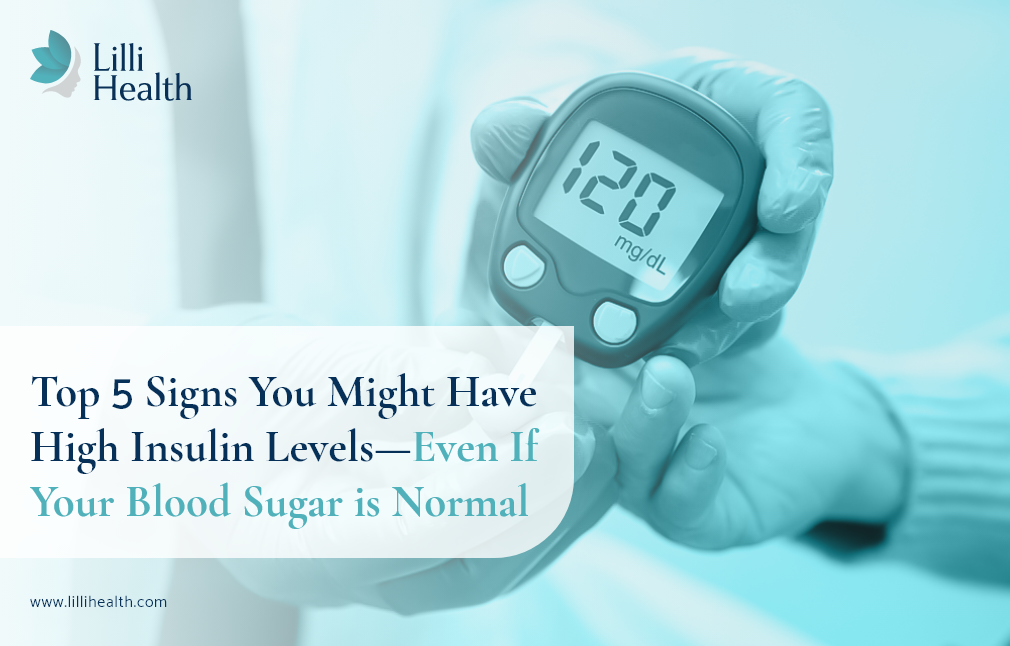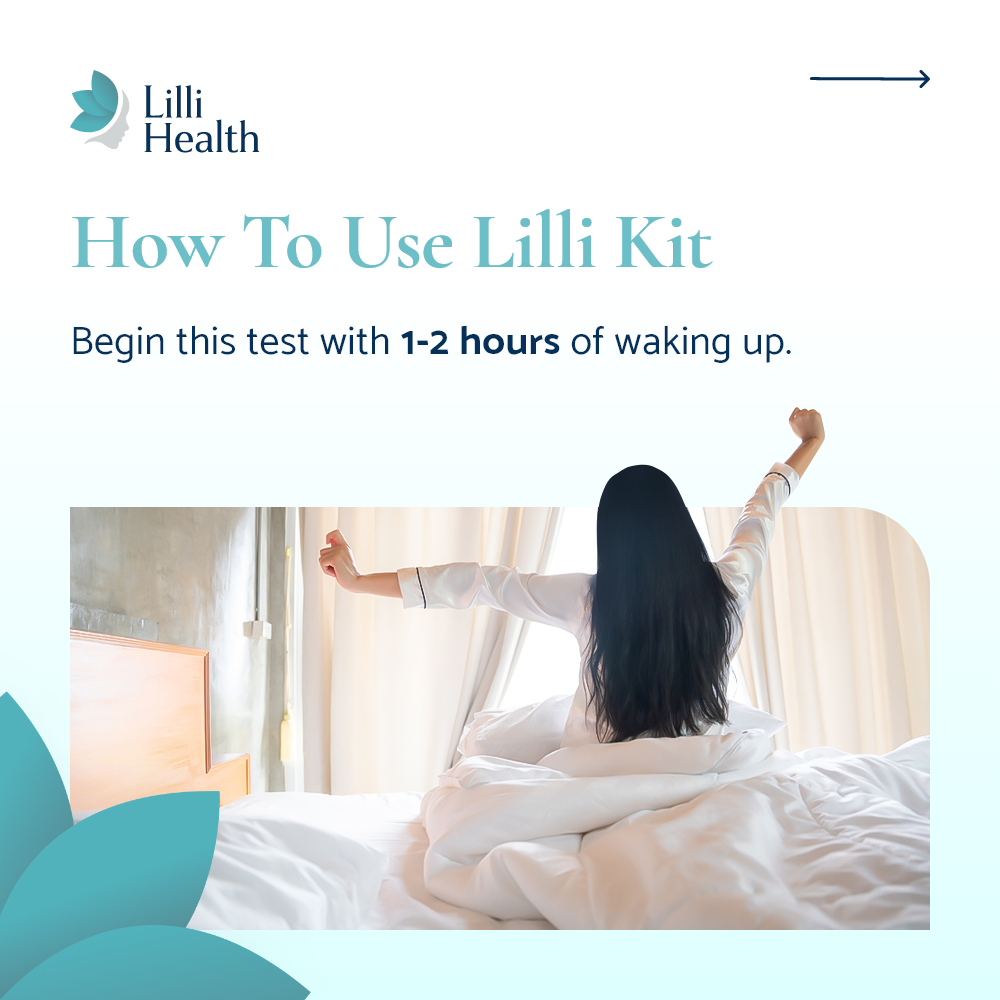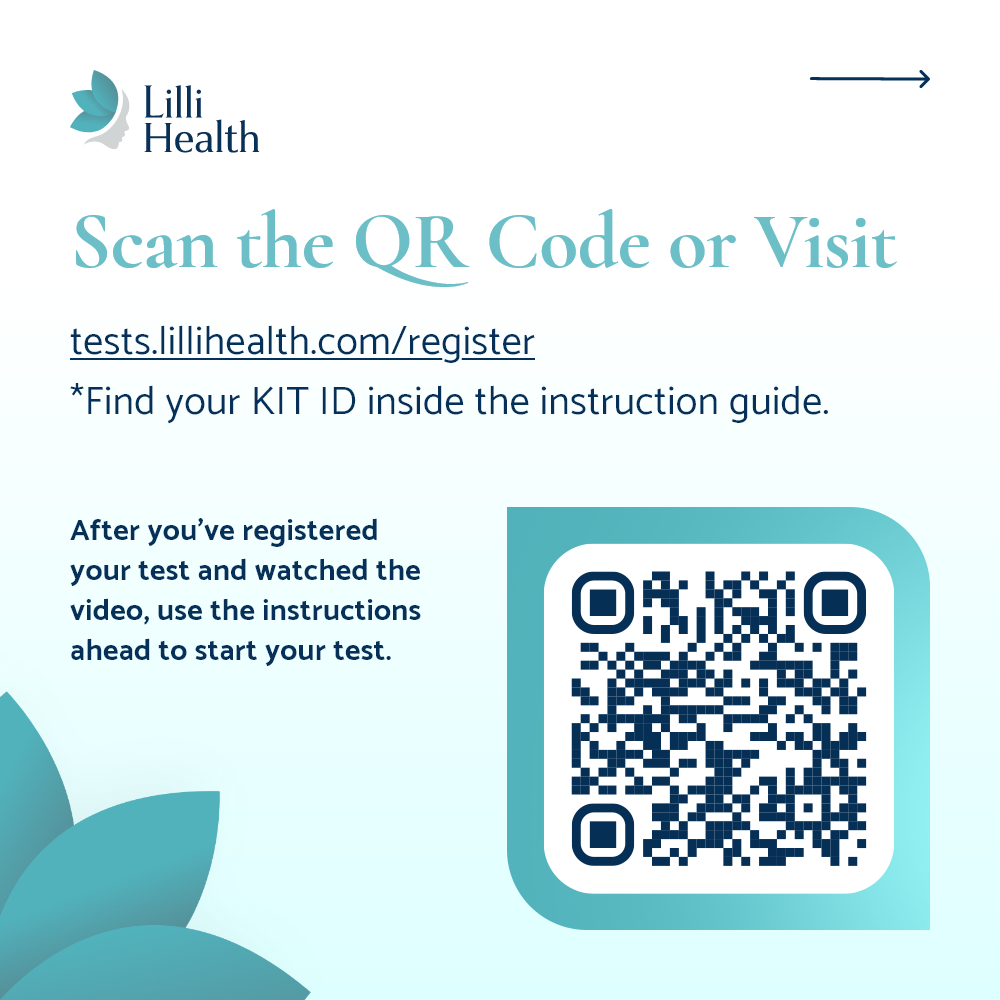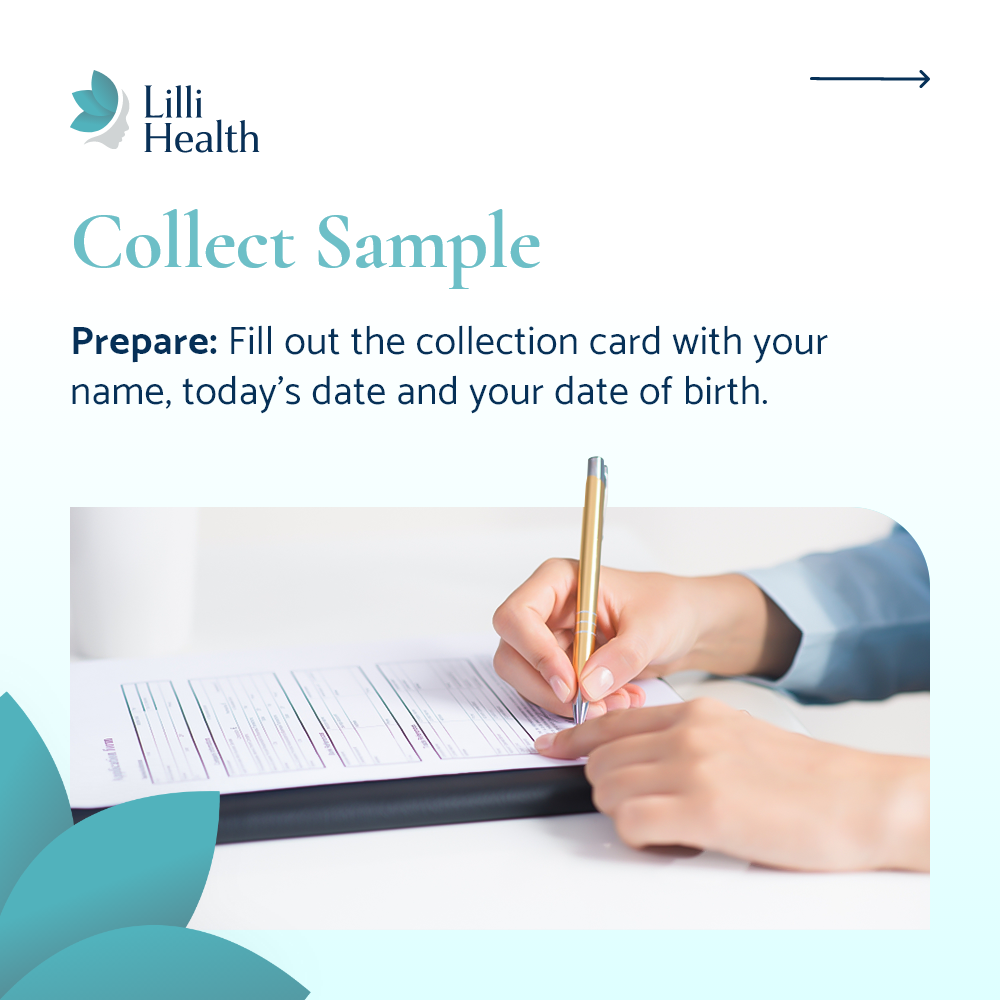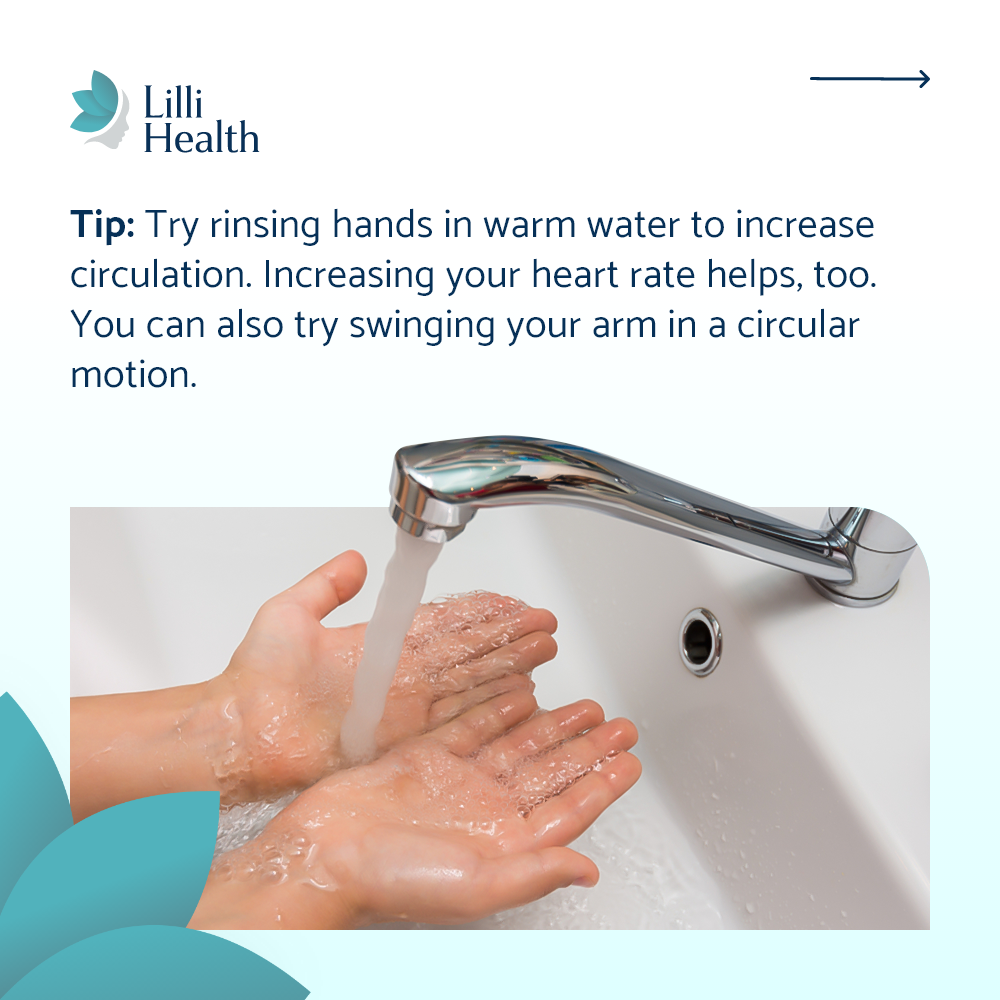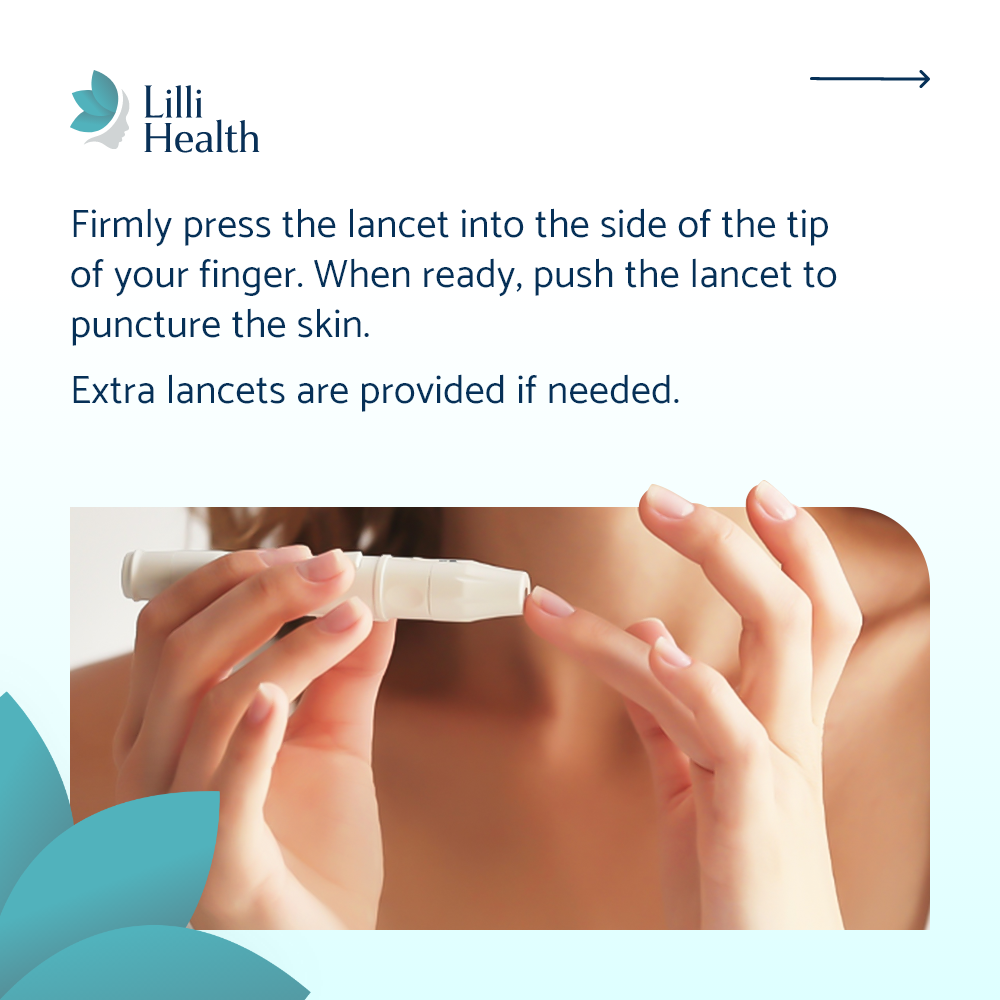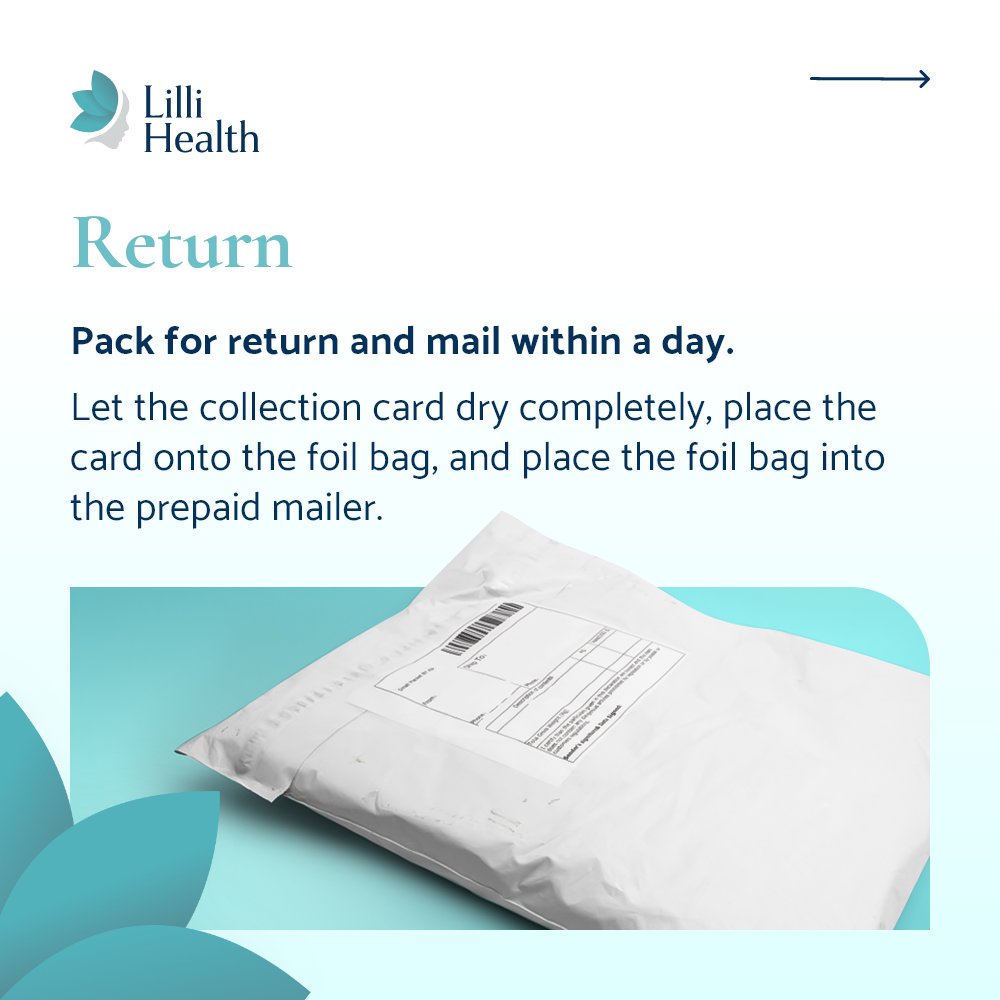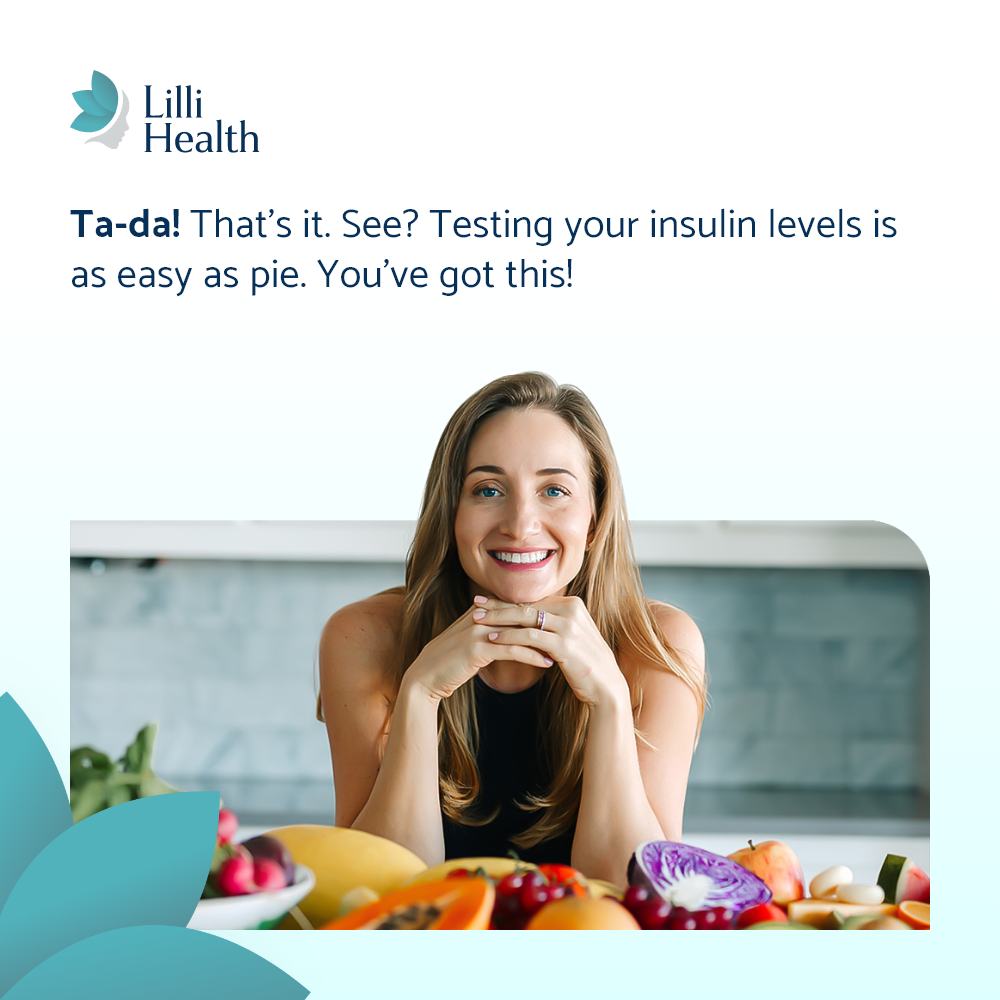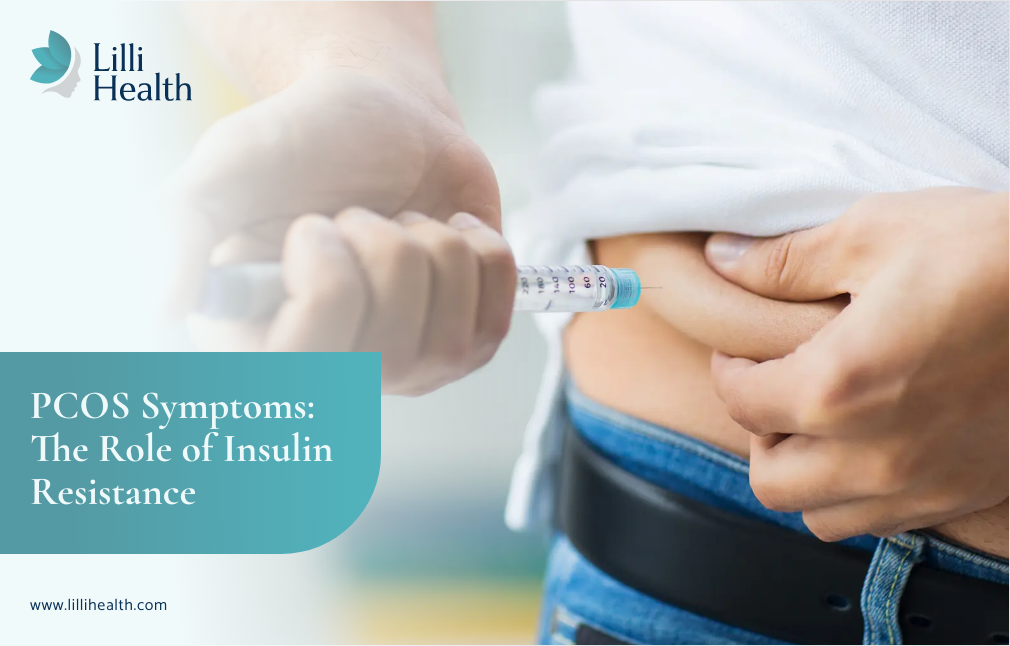

PCOS Symptoms: The Role of Insulin Resistance
Polycystic Ovary Syndrome (PCOS) can seem like a complex puzzle, with each piece intricately linked to another. A crucial piece in this puzzle is insulin resistance. If this term is new to you, you’re not alone.
The role of insulin is one of the most overlooked aspects of managing and treating patients with PCOS, but perhaps one of the most important. Understanding its implications on your body and its connection to PCOS symptoms is crucial for managing your condition, losing weight, and attaining sustainable wellness. This blog will delve into insulin resistance and its impact on PCOS symptoms. Read on for everything you need to know!
What Is Insulin Resistance?
Insulin resistance is a condition in which your body’s cells become less responsive to insulin, a hormone that helps regulate blood sugar. This means your body needs to produce more insulin to get the same effect, resulting in even higher insulin levels in the blood.
When insulin levels remain elevated for extended periods, typically as a result of eating a diet that causes recurrent insulin spikes, your body’s response to insulin begins to taper off. It’s like knocking louder on a door when no one answers, except the door is your cells, and the knock is insulin. This phenomenon is insulin resistance, where cells are resistant to the insulin the pancreas secretes.
Insulin Resistance: The Hidden Link to PCOS
Women with PCOS tend to have the highest insulin levels among any population. This means that PCOS and insulin resistance are tightly entwined. High insulin levels trigger your ovaries to overproduce testosterone, a hormone associated with several PCOS symptoms, including acne, irregular periods, and excessive hair growth.
Simply put, high testosterone levels, triggered by high insulin levels, are what you can thank for all the pesky signs and symptoms of PCOS!
Testosterone and PCOS: An Unwanted Alliance
Excessive testosterone can set off a series of chain reactions leading to common PCOS symptoms. For instance, it activates sebaceous glands, leading to increased oil production and clogged pores, which cause acne. Similarly, heightened testosterone levels can stimulate hair follicles on the face, chest, and lower abdomen, resulting in hirsutism or unwanted hair growth.
Insulin Resistance and PCOS: Affecting Ovulation and Weight
Insulin resistance in PCOS can profoundly impact menstrual cycles and body weight. Elevated insulin and testosterone levels disrupt ovulation, often leading to infertility in women with PCOS.
High insulin levels can also increase your appetite and create cravings for sugary and carb-rich foods. Remember, high insulin levels mean you can’t burn stored body fat for energy. To compensate, your body slows down its metabolism and makes you hungry, so you’ll eat more food.
It needs that extra food to help provide energy because it can’t access your stored body fat. In turn, this worsens the cycle and drives insulin levels even higher. Coupled with testosterone-induced impulsivity and increased hunger, it creates the perfect storm for weight gain – a common PCOS sign and indicator.

Identifying Insulin Resistance
Given that nearly 9 out of 10 US adults have some level of insulin resistance, it’s essential to identify this condition early on. However, measuring insulin levels is rare among healthcare providers, making detection challenging.
Common symptoms such as frequent cravings for sweets, fatigue after meals, brain fog, and difficulty losing weight might indicate insulin resistance. If you experience these symptoms, we recommend you consult a healthcare professional and ask for an insulin level test. But you should be prepared that they may say no. Luckily, Lilli Health will be launching At-Home Insulin Testing Kits soon to help you monitor your insulin levels and gain critical insights into your overall health!
What Foods Cause Insulin Spikes?
While all foods cause an insulin spike to some extent, certain types cause higher spikes than others. Foods rich in whey proteins, starches, and carbohydrates tend to cause the highest insulin spikes compared to non-starchy vegetables, fruits, and lean meats. Regular consumption of insulin-spiking foods over time can lead to long-term health complications, including insulin resistance.
“A diet that causes recurrent insulin spikes leads to insulin resistance, and insulin resistance leads to weight gain and even higher levels of insulin. This is the premise behind Lilli Health and a low insulin lifestyle. Preventing diet-induced spikes in insulin by following a low insulin lifestyle is the first step in reversing this vicious cycle.” – Low Insulin Lifestyle: My personal journey with PCOS and the science behind a low insulin lifestyle by Ali Chappell.
Can I Reverse Insulin Resistance?
Here’s the good news: you can manage and even reverse insulin resistance by following a low insulin lifestyle. Simply eating foods that don’t spike insulin is all it takes!
Your body will become more sensitive to the insulin it secretes, thereby lowering insulin levels and reversing insulin resistance. By lowering insulin levels, testosterone levels will also decrease, which can improve the signs and symptoms of PCOS.
Insulin Resistance, PCOS, and Your Long-Term Health
Understanding whether you can easily switch between burning glucose or fat for energy is an essential indicator of your health. If you assume that everyone’s body has that ability, you’re only looking at one piece of the puzzle. It all depends on how high your insulin levels are.
High insulin levels can inhibit your body’s ability to switch between burning glucose or fat for energy, impacting overall health. Unchecked insulin resistance can also lead to long-term health issues, including type 2 diabetes, heart disease, and other complex chronic conditions. But with early detection, lifestyle changes, and proper medical guidance, you can effectively manage insulin resistance and PCOS.
Introducing Lilli Health & the Low Insulin Lifestyle
Lilli Health is passionate about helping women with PCOS regain control of their health. We focus on lowering insulin levels to improve hormone balance and promote weight loss. What sets us apart is our focus on tackling the root problem – insulin. We provide education, resources, and support to help you understand the ‘why’ behind your symptoms and how to adopt an insulin-lowering lifestyle to effectively manage PCOS and improve your overall health.
Remember, knowledge is power. Subscribe to our newsletter to stay up to date on everything you need to know about managing your condition through nutrition!
